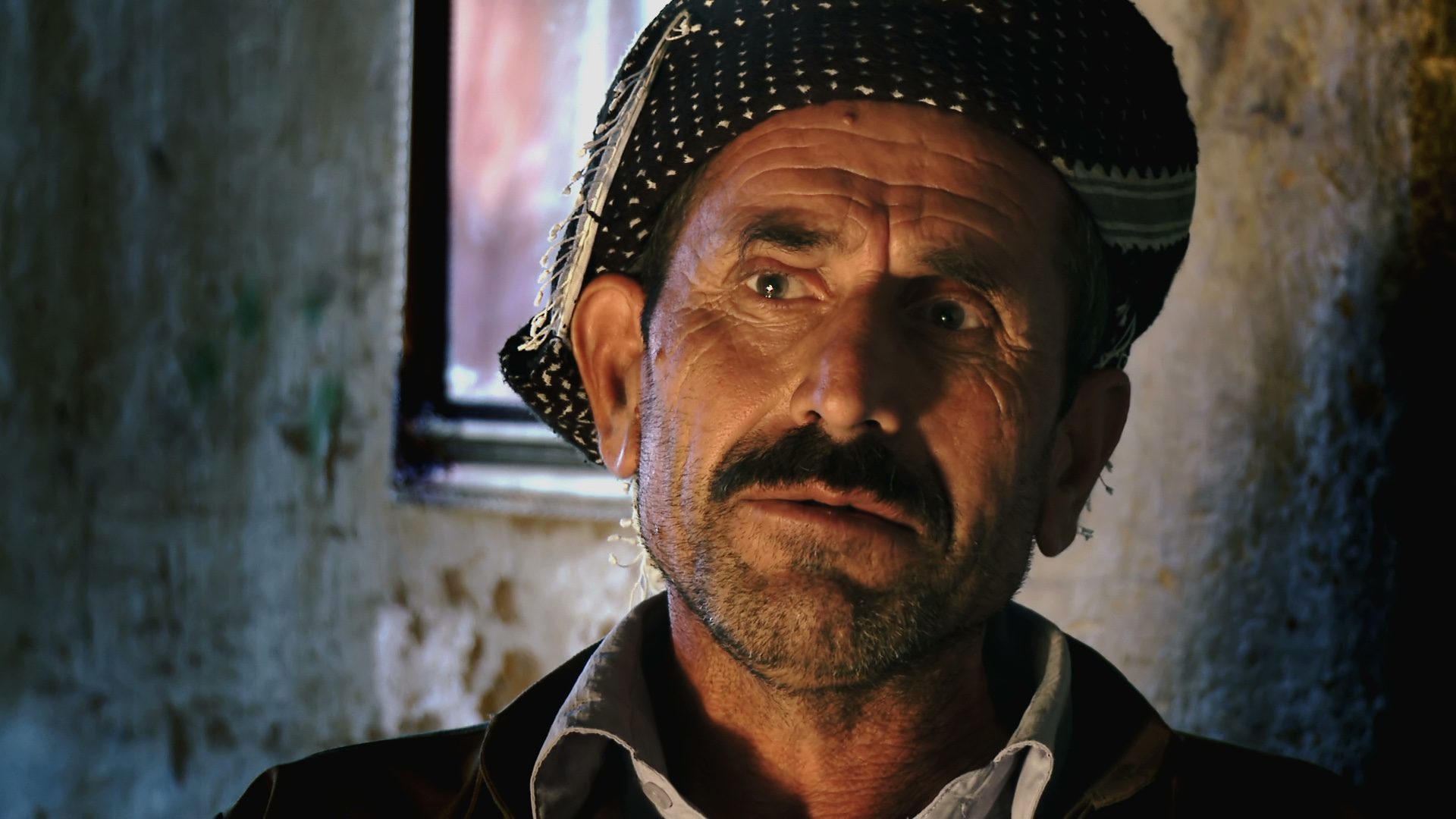When chemical bombs rained down on Balisan in Iraqi Kurdistan on 16 April 1987, most villagers refused to believe that the Iraqi government could gas its own people. It was a mistake that cost scores of lives.
Balisan had been bombed many times before. A large village of 300 houses, by 1987 it had shrunk to 42 families as people fled to the mountains. But until that day only conventional explosives had ever been used.
Ali Sheikh Mustafa had just returned home at sunset from working in the family fruit orchard and was not that surprised when he saw eight planes circling overhead.
Knowing they were about to be attacked, Ali urged his family to take cover in an air raid shelter he had built inside the house. He stood in the doorway watching the bombs drop. He noticed that the sound of the explosions was unusual: rather than pulverising the mud brick houses, they exploded like water-filled jerry cans.
‘Three or four minutes after the bombing we noticed a terrible smell of gas or burnt hair,’ says Ali. ‘Even then, nobody believed it possible the government would use gas against its own people.’
Even then, nobody believed it possible the government would use gas against its own people
After the planes had gone, Ali gathered his family in one room and, as a precaution, hung a wet curtain across the window and door. Instructing his family to stay inside, Ali hurried out to help his neighbours.
One of the bombs had left an oily substance, a puddle of about 10 square metres in size, on the ground, a tell tale sign of mustard gas. Villagers still refused to believe they had been attacked with chemical weapons. So instead of running for their lives they returned to their homes.
As they slept the children and adults began to vomit and the chilling and inescapable truth dawned on the villagers of Balisan: the village had been gassed.
As dawn broke, Ali realised that almost everyone had been blinded by the chemicals and that the Iraqi army would soon move in to Balisan. They knew that the regime would be merciless. Because of their support for the peshmerga, they were all classified as ‘saboteurs’ and would face imprisonment and worse if captured.
One man who could still see alerted the nearby village of Darash to their plight. People there rushed to the rescue. ‘They carried people on their backs and on donkeys to the main road,’ says Ali. ‘We will never forget what they did for us.’

ALI SHEIKH MUSTAFA was at home in Balisan with his wife Adiba and their children when chemical bombs fell in 1987. He told Adiba to protect the children with wet blankets before venturing out into the village at night to discover many of his neighbours had died.
By then many villagers were unconscious. ‘There were about 15 people with me. May God rest their souls in peace, they are all dead.’ All the surviving gas victims were ferried on tractors to a hospital in Raniya, a town about 130 km northeast of Sulaimaniya.
After being given eyedrops by medics, Ali lapsed into unconsciousness. His life was saved by a fellow Kurd who, desperate to help, moved him out of the hospital before the Iraqi security forces could intervene and drove him away in a hired car.
When Ali woke up three days later, he discovered he had been moved with two other Kurds to a hospital in Sulaimaniya. But his family had been left behind.
Doctors here refused to treat the wounded men. ‘They said,”You were attacked with gas and nobody here should treat you. Discharge these patients”,’ says Ali. ‘We shouted: “We are Iraqi citizens and we are patients. Why are you sending us away?”’
“You were attacked with gas so nobody here will treat you,” said the doctors at Sulaimaniya. “But we are Iraqi citizens,” we shouted. “Why are you sending us away?”
Ali and his two companions, all blinded, spent the night at the home of a Kurd who had taken pity on them at the hospital. Next day they returned for treatment and a Kurdish doctor agreed to help them secretly. He never revealed his name for fear of arrest.
The three men were eventually discovered and interrogated by Iraqi security officials but insisted they were simple farmers. A hospital nurse eventually contacted Ali’s family and then smuggled them out of the building under the noses of the Iraqi authorities. ‘We left there still wearing hospital dress,’ says Ali.
Ali was later called as a witness at Saddam Hussein’s trial in Baghdad in 2006. ‘I was so happy I couldn’t speak,’ says Ali.
